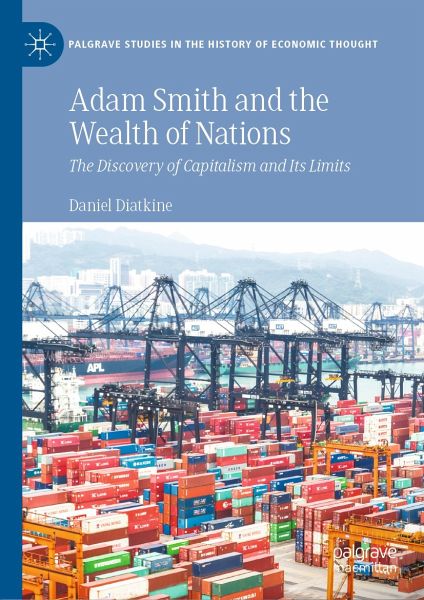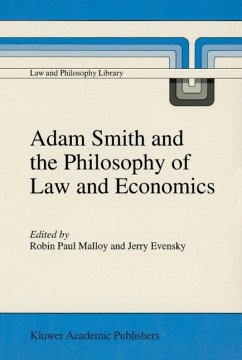
Adam Smith and the Wealth of Nations (eBook, PDF)
The Discovery of Capitalism and Its Limits
Versandkostenfrei!
Sofort per Download lieferbar
64,95 €
inkl. MwSt.
Weitere Ausgaben:

PAYBACK Punkte
32 °P sammeln!
This book examines the work of Adam Smith and his interest in the science of the legislator. Smith's criticism of the mercantile system and the political dimension of capitalism is discussed, alongside insight into what institutions he saw as necessary to transform the mercantile system into a system of natural freedom. Through insights into Smith's analysis of the political threats of capital accumulation and the growth of inequality, the point at which he discovered capitalism is highlighted.This book aims to explore Smith's belief set out in The Wealth of Nations that the mercantile system ...
This book examines the work of Adam Smith and his interest in the science of the legislator. Smith's criticism of the mercantile system and the political dimension of capitalism is discussed, alongside insight into what institutions he saw as necessary to transform the mercantile system into a system of natural freedom. Through insights into Smith's analysis of the political threats of capital accumulation and the growth of inequality, the point at which he discovered capitalism is highlighted.
This book aims to explore Smith's belief set out in The Wealth of Nations that the mercantile system was a viable, if dangerous, economic model. It is relevant to students and researchers interested in the history of economic thought.
This book aims to explore Smith's belief set out in The Wealth of Nations that the mercantile system was a viable, if dangerous, economic model. It is relevant to students and researchers interested in the history of economic thought.
Dieser Download kann aus rechtlichen Gründen nur mit Rechnungsadresse in A, B, BG, CY, CZ, D, DK, EW, E, FIN, F, GR, HR, H, IRL, I, LT, L, LR, M, NL, PL, P, R, S, SLO, SK ausgeliefert werden.












